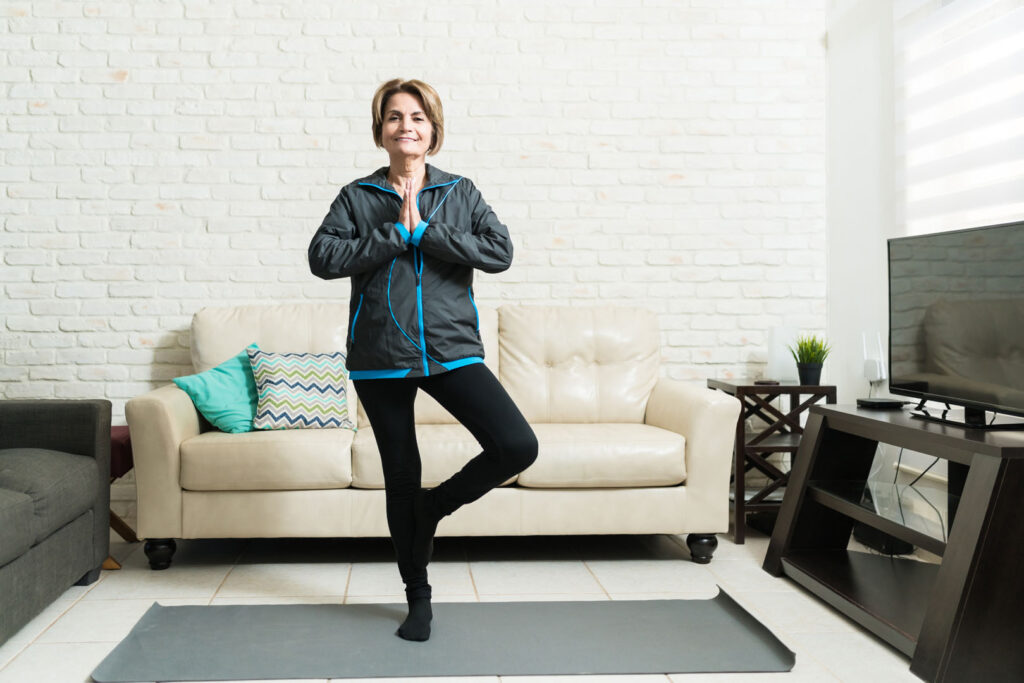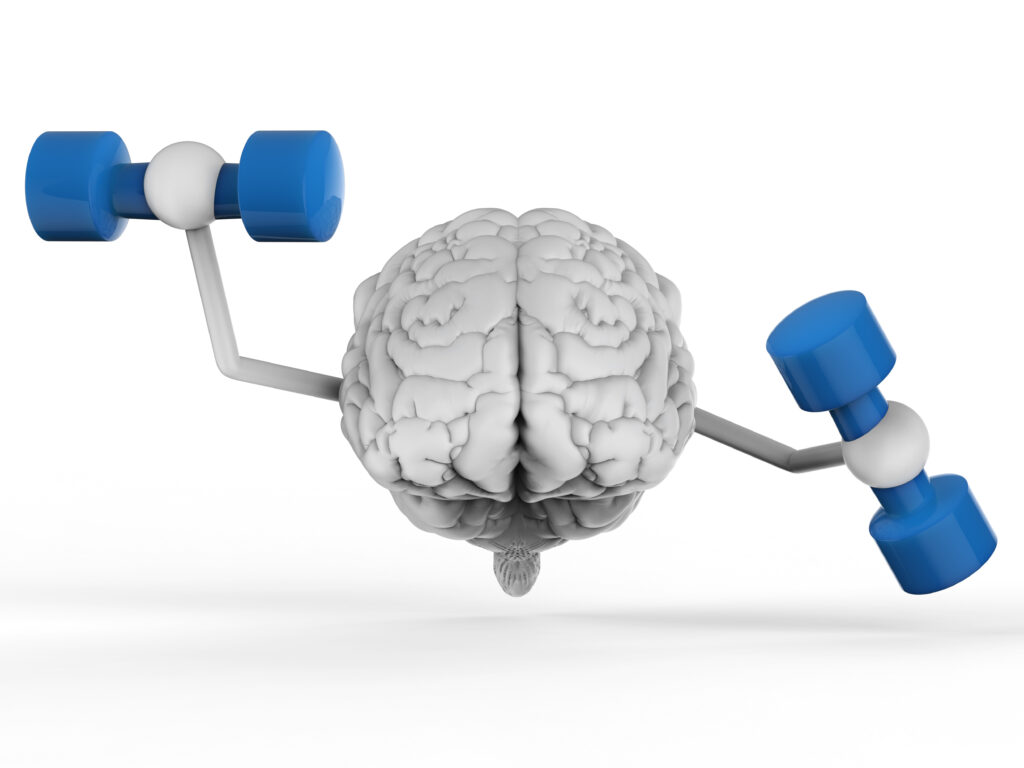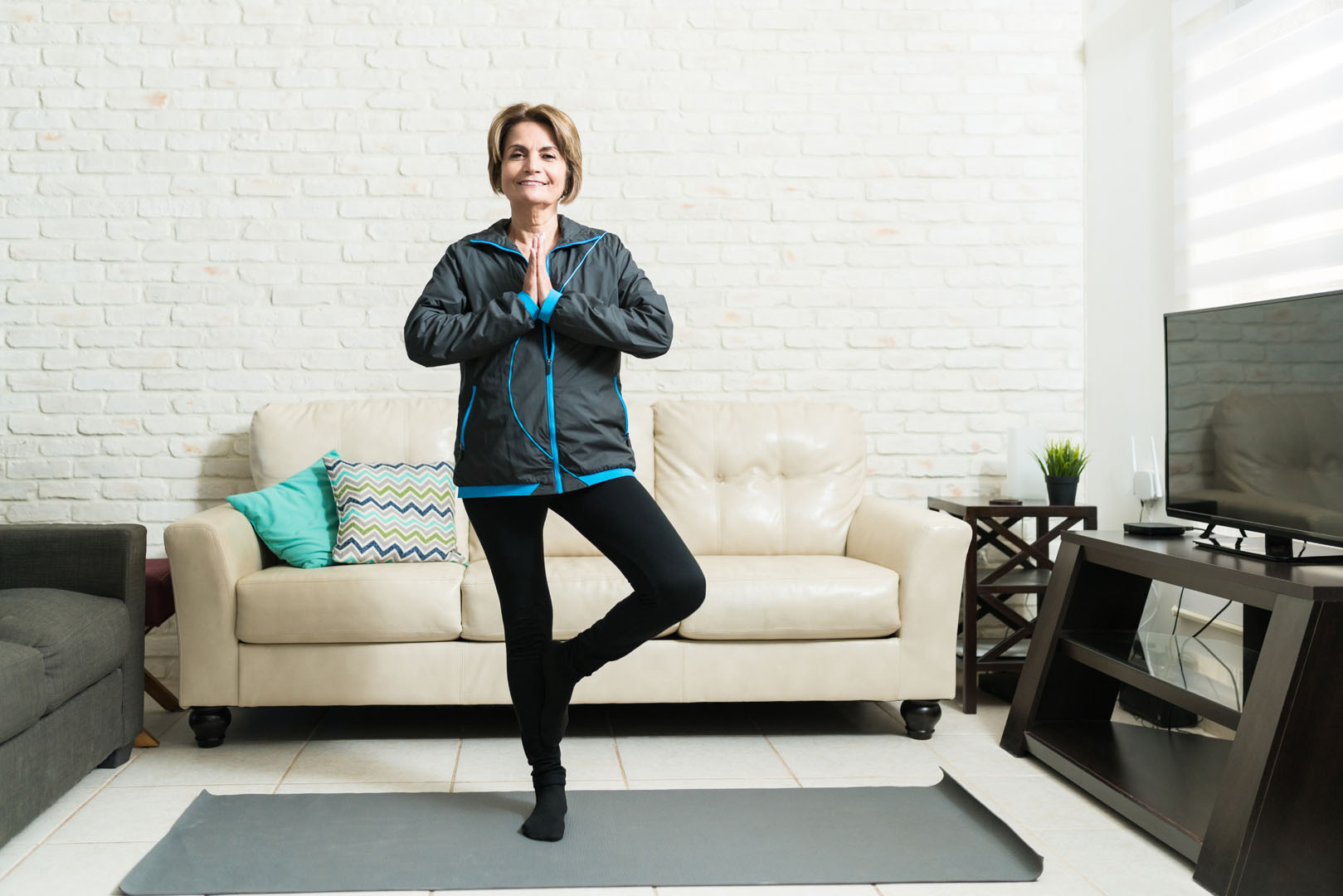On this blog and throughout the Bone Builder System, we often discuss the importance of balance when it comes to bone health. Better balance can protect our bones by preventing falls, for example. But there’s another important and lesser-known benefit of improving your balance: your brain gets stronger too.
If you want to protect your bones and your brain, it’s time to think about your balance. Learn why balance starts decreasing, what it takes to stay balanced, and how it all comes together to benefit your brain.
Balance Decreases During Middle Age
Our sense of balance often starts to decline as we age. This steady decline typically starts between the ages of 40 and 50 years. Around this time, people experience many issues that may contribute to this loss of balance, including:
- Vision changes
- Muscle loss
- Less coordination
- Decline in reflexes
- Changes to the inner ear
All of that is a natural part of aging. Some people also take medications or have blood pressure changes that contribute to a decline in balance.
All of these issues tend to worsen as we go into our golden years, leading to even worse balance. That is unless we do something about it.

Balance is Hard Work for the Brain

Keeping your balance may seem simple, but it’s a pretty complex thing that your brain does without you even realizing it. In order to maintain balance, your brain must coordinate several different systems:
- Muscles – which ones are engaged and at what time
- Inner ear – signals from the inner ear
- Vision – taking in your surroundings
- Proprioception – your sense of where your body is in space
Coordinating all of that activity takes hard work. And just like your muscles, the harder your brain works, the stronger it gets.
Brain Benefits of Better Balance
Many researchers have found a correlation between balance and brain health as well. For example, a 2015 study by Dr. Yasuharu Tabara in Kyoto, Japan found that testing a person’s ability to stand on one leg was an important test for brain health. This research includes hundreds of men and women with an average age of 67 years.
Doctor Rachel Cooper in the United Kingdom found a similar result. This longitudinal study found that participants who couldn’t balance on one foot for long were more likely to pass away at a younger age. This study was conducted on participants in their 50s and shows that balance is important even before we would normally expect to see a cognitive decline.
If you’re ready to work on your balance, brain, and bones, try out the Bone Builder System. While “bone” is in the name, it’s not just about your bone health. This system builds muscle, balance, coordination, and more.




